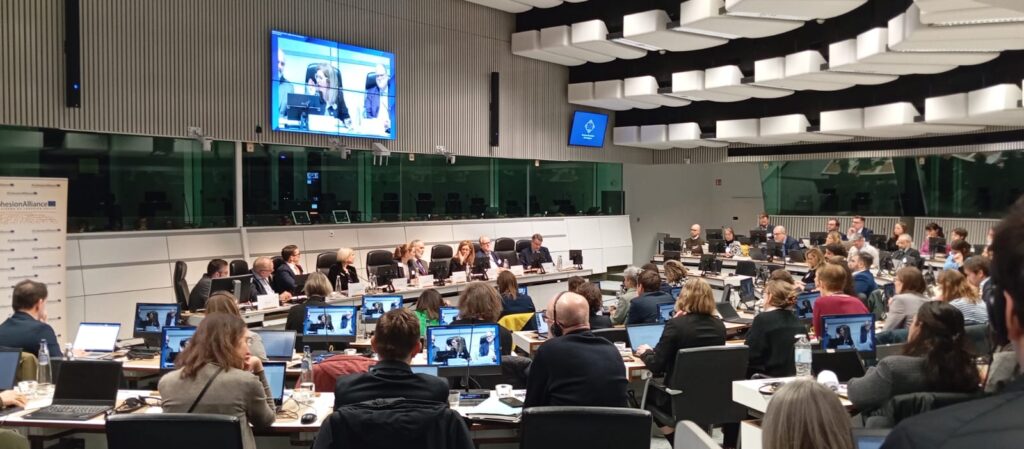Brussels – A new way of using cohesion funds, so they are more “European” in the rules of use and less local. Tying the use of European money to the reform agenda is being explored for the next cycle of cohesion policies. A model based on the model of the European Semester, the cycle for coordinating the economic and budgetary policies of member states. The proposal comes from a study carried out on behalf of the German government’s Ministry of Economic Affairs and Climate Action and presented to the European Committee of the Regions (COR).
For post-2027 cohesion, there is no talk of reform, even in light of an EU enlargement process that mandates it, rather of governance. The study brought to Brussels focuses on resource management in terms of general, accounting, and merit principles. It assumes that reforms could help improve the rate of resource use and absorption and overcome that structural problem that affects some more than others, with Italy among those struggling to build upon the resources made available.

From rigorist Germany, thus comes rigor in cohesion. Underlying the functioning of the EU and its programs are public funds, national resources put in by individual states, and, thus, German taxpayers as well. For the new cohesion cycle to come, while waiting for the European Commission to unveil what it intends to do with the next multi-year budget (MFF 2028–2034), the game’s rules are being dictated. These include re-introducing advance evaluations in parallel with the current program, i.e., analyses of policy success before the intervention is declared finished.
Planned in the 2014-2020 programming cycle and eliminated in the current one, ex-ante verifications are conditionalities that link the disbursement of funds to the demonstration of socioeconomic benefits achieved in the medium term against the mobilised resources. In a nutshell, money for real reforms and real growth. In the reform of resource use management, however, the intention is to maintain an active role for local governments through regional foresight processes to prepare strategic programs.
Nicola De Michelis, Deputy Director-General of the European Commission’s Directorate-General for Regional Policies, understands the proposal’s principle, which aims for the efficiency needed for competitiveness: “There is a perception that one-third of the EU budget is lost in so many fragmented projects, and that this makes the link between the budget and the EU agenda get lost.”
English version by the Translation Service of Withub
![Il commissario per l'Economia, Valdis Dombrovskis, in conferenza stampa a Strasburgo [12 febbraio 2025]](https://www.eunews.it/wp-content/uploads/2025/02/dombro-250212-350x250.png)




